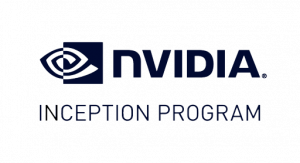Why Is 5G Important to Autonomous Cars?
Part of our mission in supporting the autonomous vehicle eco-system fulfil its goals is to bring out information from aligned parts of industry and technology to a wider audience, through interviews, articles and features – either through our website and newsletter, or on our YouTube channel.
In our first written interview, we talk to Marc Jadoul, a technology evangelist and leader of the Nokia’s IoT development, to grill him on how the company is changing and what the new demands are from more intelligent vehicles.
Many people see 5G as critical to autonomous vehicles, but others (notably from areas which are used to creating standalone robotics) disagree. State your case…
5G will be beneficial for many industries. You can look at it as a Swiss knife that will provide us with a superlative for all wireless networks technologies we’ve seen so far.
First, 5G technology will greatly improve wireless networks’ capacity and data speeds, allowing network providers and road operators to offer much more robust internet connections and meet growing demand for data-intensive services, like video streaming and Internet of Things applications.
But, ubiquitous coverage (LIDAR scanners have an operational radius of only a few tens of meters), milliseconds latency, and better geolocation services (centimeters, compared to GPS’ 10-15 meter accuracy) will play a central role in the proliferation of self-driving cars and the support or safety-critical V2X communications, and situational awareness that enables collaborative behaviour of cars, cyclists and pedestrians.
Therefore, I’m convinced that 5G connectivity will play an important role in collaboration with on-board intelligence and other short range communication technologies.
Nokia has been many things, a pulp mill, cable manufacturer and of course a mobile phone company but in the last 5 years, that’s changed a lot and now the company is a more general technology developer. Is this about selling chips, licensing software, contract design, selling consultancy or just staying relevant?
The past is the past, but tomorrow is right around the corner. So, it’s not about “staying relevant”. We create the technology to connect today’s world. Enabling the infrastructure to transform tomorrow’s human experience. We serve communications service providers, governments, large enterprises and consumers, with the industry’s most complete, end-to-end portfolio of products, services and licensing. The historic examples you mention illustrate Nokia’s capacity for transforming, developing new technologies, and adapting to shifts in market conditions.
Our 5G portfolio, which is a comprehensive combination of infrastructure, software, and services is a good illustration of what Nokia stands for.
Will the advent of 5G help developing countries with poor communications infrastructure catch-up beyond industrialised countries relying on upgraded 20th Century hardware?
I think your vision on “upgrading 20th century hardware” understates how big this change is. As 5G will revolutionize lives, economies, and societies in many exciting ways, it’s a crucial enabling technology of the future for all markets. Many industrialized countries have already started planning their 5G journey and are trialling the new technology. Look, for example, at what’s happening in the US, South Korea, and France.
Recruitment is a growing problem across the automotive sector as is having to compete with other more established digital industries – what else can the auto industry do?
We’re in telecoms, not the automotive sector. This said, I understand that the market is competitive, and many companies are looking for technically skilled people today. But, personally, I would assume that with all exciting stuff happening in the automotive and transportation sectors, it would not be too difficult to attract people. As long as companies keep investing in innovation and in delivering a great customer experience.
35 years ago – during your academic career, you were looking at Turing machines and automation – is that still relevant and useful to what you do now?
I remember that my old physics teacher had a sign on his classroom door that said, “If you don’t know mathematics, stay out!” It is generally accepted that mathematics is kind of a basis for all science, and I believe theoretical computer science plays kind of a similar role in informatics. Automata theory helps you understand how algorithms work, and computational theory helps you grasp their complexity and the resources it might take to solve a problem.
By the way, I see a similarity with data science today. Anyone can take a dataset and run a Machine Learning program on it. But you need some good knowledge about statistics and logical regression to interpret the outcome of your predictions and evaluate the performance of your model.
What advice would you give to someone looking to specialise in your expert area, who should they talk to, emulate, study, read and work for?
Always keep a close eye on what’s happening in the industry, go beyond the buzzwords, and try to understand how you can leverage new technologies like 5G, cloud, the Internet of Things, Artificial Intelligence, etc. for creating a new human experience.
Tell us about what Nokia offers to help people on their journey into the autonomous vehicle sector?
I’d recommend you start with visiting the Nokia blog. You’ll find a lot of interesting posts about 5G and the future of transportation.
Thanks Marc and Nokia, as well as the Taas.Technology conference for supporting the interview. Subscribe to our newsletter for occasional updates from us, or explore upcoming events and jobs!







